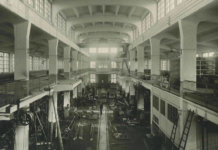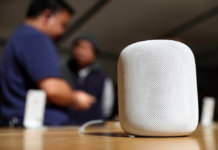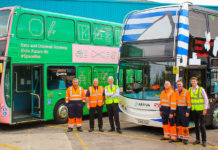Interview with Samuel Dyer, Founder and President D&C Group, Peru
Husband-and-wife team Samuel Dyer and Rosa Coriat were both born into entrepreneurial families. Samuel’s family moved from the country to Peru’s capital Lima when he was ten years old where his father opened a hardware store. Together with his eleven brothers, he began to help out after school and so learned early on that success comes to those that work hard and persevere in the face of adversity.
In the 1980s Dyer co-founded his first business with his wife Rosa selling industrial hardware tools. Business successes followed as the couple as they built company after company. Today, they spearhead D&C Group a diversified group of companies and together with their children tackle the task of creating sustainable opportunities and employment for the people of Peru.
Tharawat Magazine spoke to Samuel Dyer to discover how he defines success, why people are all that matter, and how family businesses are the future of Peru.

How did you start on your entrepreneurial journey?
I was born in a family of entrepreneurs and so was my wife. My childhood was spent in the cities of Huánuco and rural suburbs of Ucayali. At the age of ten, we moved to Lima and my parents opened a hardware store, in the district of Breña. My eleven brothers and I helped out in our free time after school from the very beginning. These were I guess my entrepreneurial beginnings.
In 1980, my wife and I founded the company Fierros y Herramientas S.A.- FIHESA, selling industrial hardware tools after which we moved to wholesale distribution. In the 80s, we founded in partnership with my brother Luis the companies Aceros y Techos S.A. – ACETESA to import and market steel products and Galvanizadora Peruana S.A., to galvanize steel sheets in the Peruvian Amazon.
In 1994, together with my wife Rosa and my brothers Luis and Edward, we founded the company Corporación Pesquera Inca (COPEINCA) in Piura (Bayóvar), which became one of the largest producers of fish oil in the world exporting to North America, Europe, China, and Japan, among others.
Also, together with my wife and children, we formed the Dyer and Coriat Group (D&C Group), which has been making investments in various sectors, such as the agro-industry, aquaculture, afforestation, and real estate. Currently, we are the majority shareholders of Camposol, the largest agro-industrial group and producer of fruits and prawns in Peru.

What were the biggest challenges you faced in the development of Camposol since you acquired the company?
As in all the companies that we manage as a Group, our biggest challenge was to hire a professional team, ethical people that work as a team to achieve the objectives we propose. Our emphasis has always been on people, professionalising our management, working with good practices and continuous improvement at a group level and Camposol was no exception.
Camposol, since its foundation in 1997, was born as a great dream shared with the nation and with entrepreneurial investors, to turn a desert into a great “green sea”, transforming the reality the region La Libertad of Peru, through modern agriculture, using cutting-edge and sustainable irrigation technology that provides formal and dignified work to thousands of families, as well as growth opportunities and a better quality of life for all who participate in this great project.
During its first 10 years, Camposol was an agricultural company, focused on the cultivation of asparagus, mainly distributing to the European market. Starting in 2007, with the purchase of the company led by the D&C Group, Camposol changed course and set out to become a world-class company, diversifying to grow and be more solid, both in the products it offered, in the geographical locations of its fields and plants. The global presence grew accordingly.

In the regions La Libertad and Piura, the avocado, grapes, mangoes, tangerines, grapes and cranberry were crops in which we invested in order to offer a diversified and attractive product portfolio for our clients and markets. Then we internationalised and opened commercial offices in Europe, the United States and China, establishing direct business relationships with the main supermarket chains in the world.
Over time, Camposol identified another growth opportunity with its aquaculture division: Marinasol, which offers marine products, mainly prawns, to international markets. Thus, Camposol has become a world-class company with three important divisions: Camposol Frutas & Vegetales, dedicated to agro-industry; Marinasol, dedicated to aquaculture; and, Camposol Internacional, our division that operates abroad as the commercial arm of the company and allows us to directly access our clients in the world.
Today, Camposol has no limits. Our vision of becoming the Peruvian multinational that offers healthy food with a sustainable and socially responsible model – to families around the world, is getting more real every day. We pursue constant research and innovation to add more products to our portfolio. Our close relationship with 20 of the 25 most important supermarkets in the world and our establishment in more than 40 countries, goes to show that we are destined to continue growing in what we do best: bring the best quality food to the tables of all the families of the world, always acting responsibly towards our people, our customers, the community, and the environment.

Tell us more about the role of agriculture in the Peruvian economy
The agroindustrial sector today occupies second place in Peruvian exports, after mining. This has been possible thanks to reforms initiated 25 years ago, to modernize agriculture, allow domestic and foreign private investments and make Peru competitive in this industry. Thanks to the commitment of the public sector, which provided clear regulations in addition to building infrastructure that would allow the irrigation of desert areas, they have made it possible for the sector to become efficient. The development of the sector has allowed the creation of thousands of formal jobs for both men and women, offering them a real opportunity to get out of poverty and improve their lives. This has worked in Ica and La Libertad and very soon in Piura and Lambayeque and, later on, probably in all the regions of the Peruvian coast and hopefully in the mountains and jungle as well.
However, to date, Peru has grown only 5% of its agricultural potential on the Peruvian coast. As I mentioned, we believe that Peru has a giant potential in terms of afforestation agriculture. To cultivate woods, in the Amazon and the mountains, it could even surpass agro-industry. As a country, I believe we should focus on identifying products with high global demand, our infrastructure, energy, technical schools and other factors that will allow us to gain competitiveness and make the most of our resources.

How do you operate D&C Group today and how many family members are involved?
The D & C Group is a family group, entrepreneurial and professional, with a vision of growth and transcendence. We have a Family Protocol, a Family Council, independent consultants and international standards of ethics and corporate governance. The family understands and values the specialised work and supports that it must be in the hands of competent professionals, whom we empower so that they can carry out their work in the best possible way.
Today, my wife and I are Vice Presidents of the D&C Group. Only three of my children work in our businesses: Samuel, who is the General Management of the Holding and the Executive Presidency of Camposol; Piero, who is in charge of the research, development and expansion of the Group; and, Sheyla, who is a Director in Camposol. My other two sons reside abroad and dedicate themselves to their personal activities. But all seven of us are part of the Family Council, the Shareholders’ Meeting of the Holding and are directors at the Holding level. We are prepared so that the Family Group can transfer to the next generations and our 11 grandchildren are already learning the business and the commitment of the family to our country and society.
Was your intention always for your children to join the business?
As a family, we have always thought that business should go beyond its founders. For this reason, we have worked hard to have a solid family protocol, clear rules of succession, order in family roles, the separation of the company from family relationships, as well as surrounding ourselves with the best professionals in the market to give sustainability to our businesses.

How did you handle the transition when your children joined the business?
My children always knew that they would not get preferential treatment in the family businesses. They knew that only those that are capable can get high-ranking positions in the group. For example, our oldest son, Samuel, after finishing his studies in Business Administration in the USA, he immediately began working his way up through the family business ranks. He began by becoming an assistant in a fishing fleet, and went through all levels of the organisation before occupying a managerial position. As we discussed earlier, only three of my children hold positions today in the family business and only two in management positions, but at the family holding level. We have learned that part of the success is to accept that you have children whose vocation it is to follow you into the business and others who have a different calling. But all of them need to know how to be good Directors and shareholders.
[ms-protect-content id=”4069,4129″]
How do you define success today?
For my family, success has always been linked to the creation of prosperity and generation of employment for our country. It makes us very happy to continue employing people in our companies and we always seek to further show them our respect and appreciation for the work they do. We want others to thrive and for generations to come. So for us, success would be, for example, to see thousands of large and medium-sized family businesses – today there are no more than 5000 – and all are successfully contributing to the development of our country. I am honoured to chair the Association of Family Businesses of Peru (AEF Peru), an entity that, as in other countries, brings together family businesses to exchange experiences and access knowledge and best practices in the field. It gathers over 400 Peruvian family firms.

From the business perspective, we consider that the world today is very dynamic, due to globalisation, science, innovation, knowledge and technology, so the company has to evolve hand in hand with these mega trends. For this reason, we are permanently committed to innovation, development and continuous improvement as a culture for every business unit.
What are the best opportunities for entrepreneurs and family businesses in Peru today? Where do you face challenges?
Peru is a country of opportunities. For more than thirty years we have had a stable legal framework, and a state that favours free enterprise and economic development. Therefore, in this period, poverty has been reduced by more than 50%. However, we already require the second generation of reforms and face the challenges of education, health, infrastructure and justice that we need in order to continue to prosper and achieve wellbeing for all citizens. It is also important to fight corruption so that resources reach the right people.
What is your vision for D&C Group?
We are focused on consolidating and continuing to grow in our current businesses, including agribusiness and aquaculture. We think that Peru is a country with competitive advantages in these industries and that the global demand for healthy foods will continue to grow. Likewise, my wife and I have the dream that the country will become a world power in two new sectors – where we have clear competitive advantages and human and natural resources that strengthen the economy: aquaculture and afforestation, whose promotion is urgent. We are sure these could lead us to faster development as a nation, and generate employment as well as environmentally friendly products.

[/ms-protect-content]














